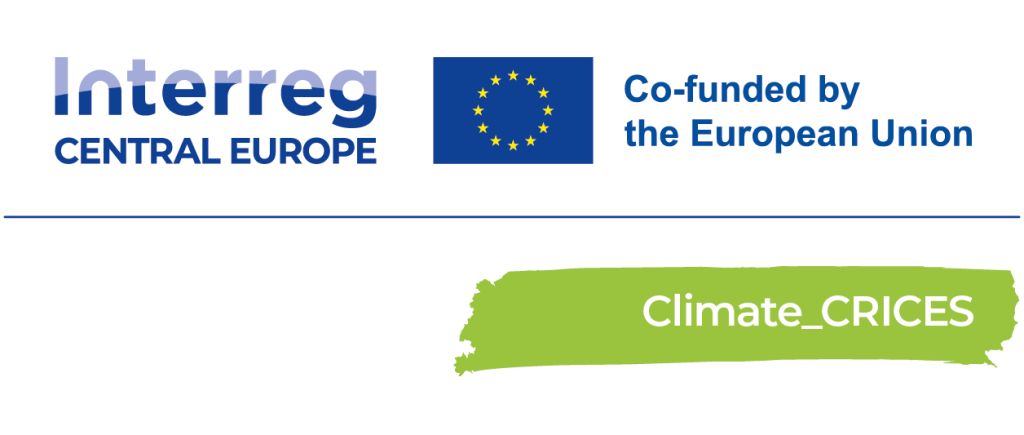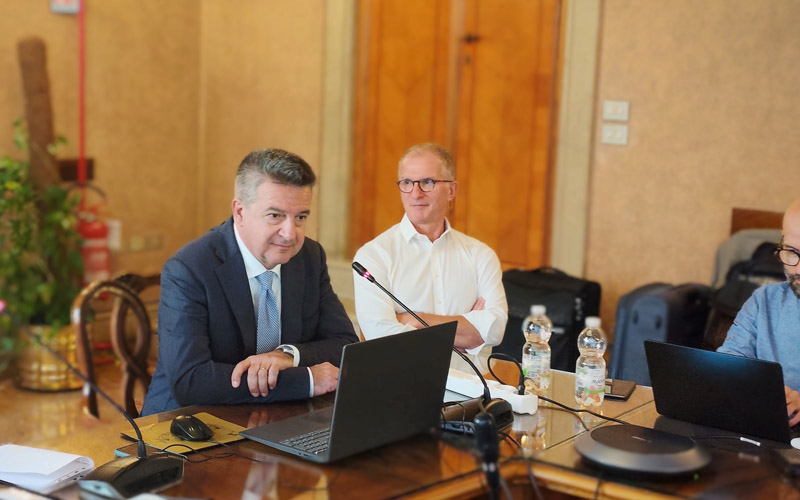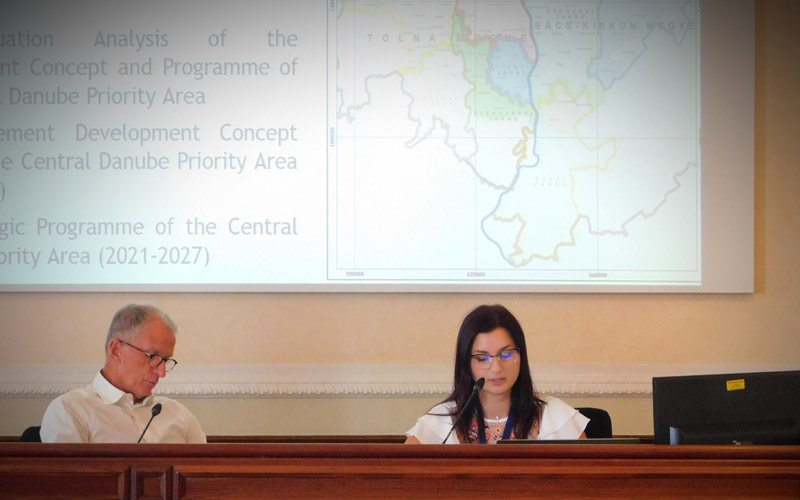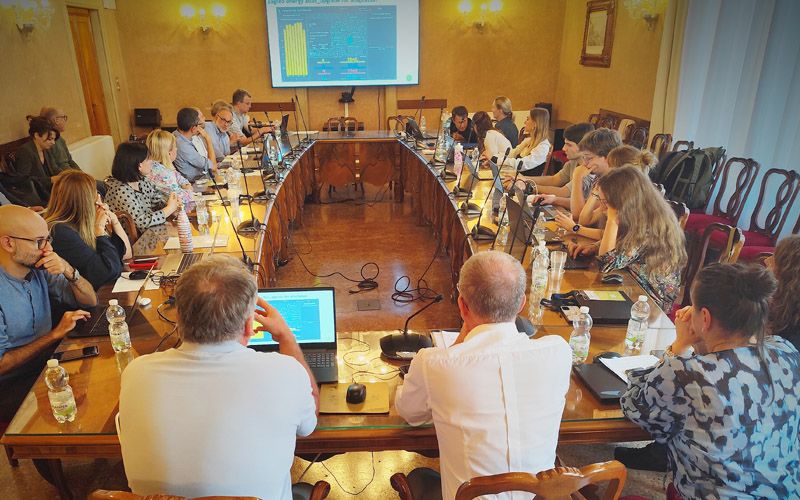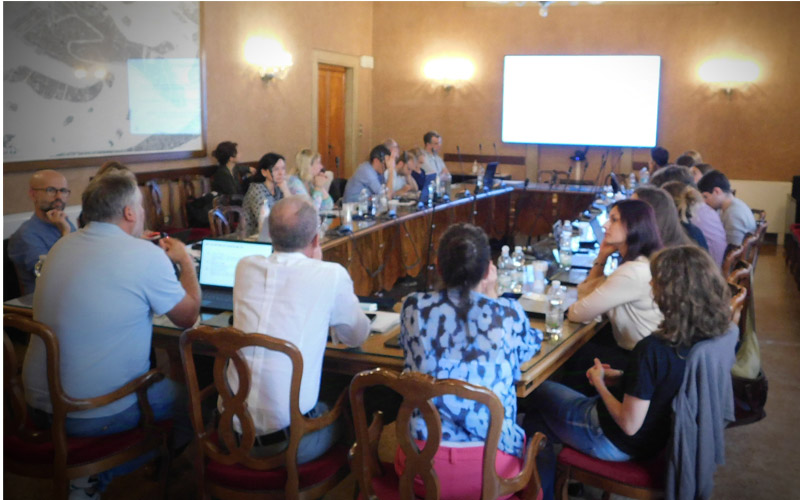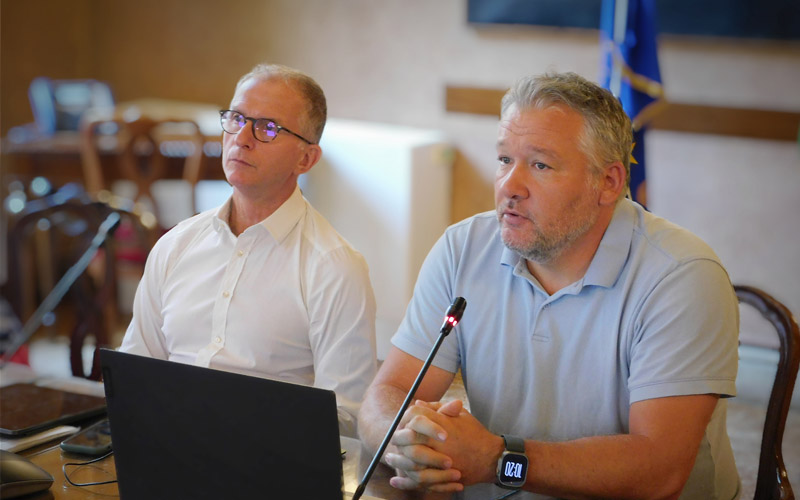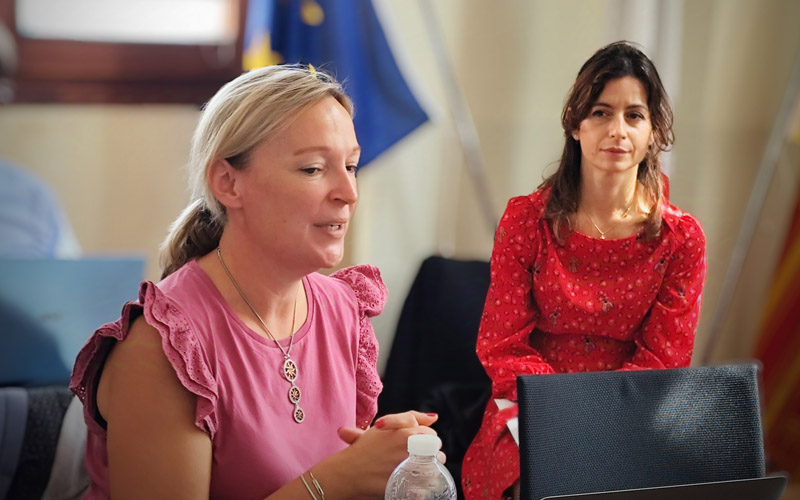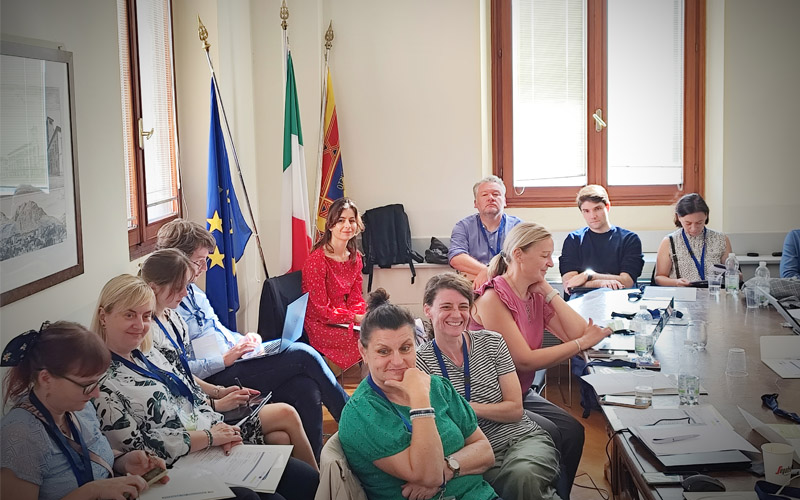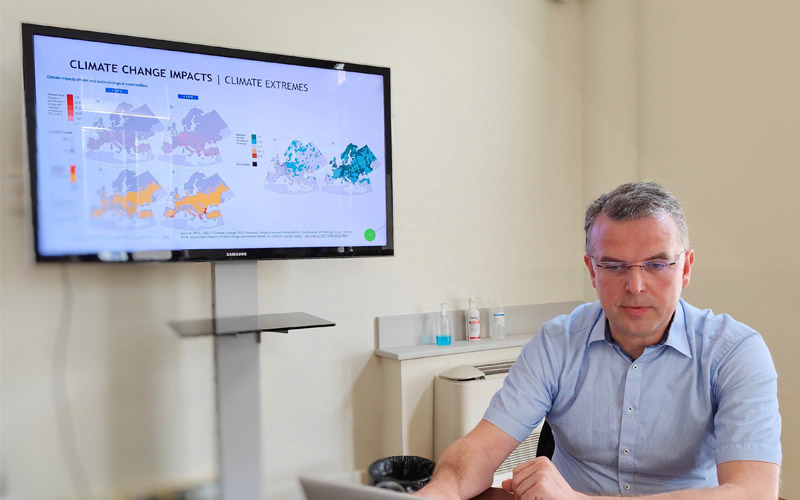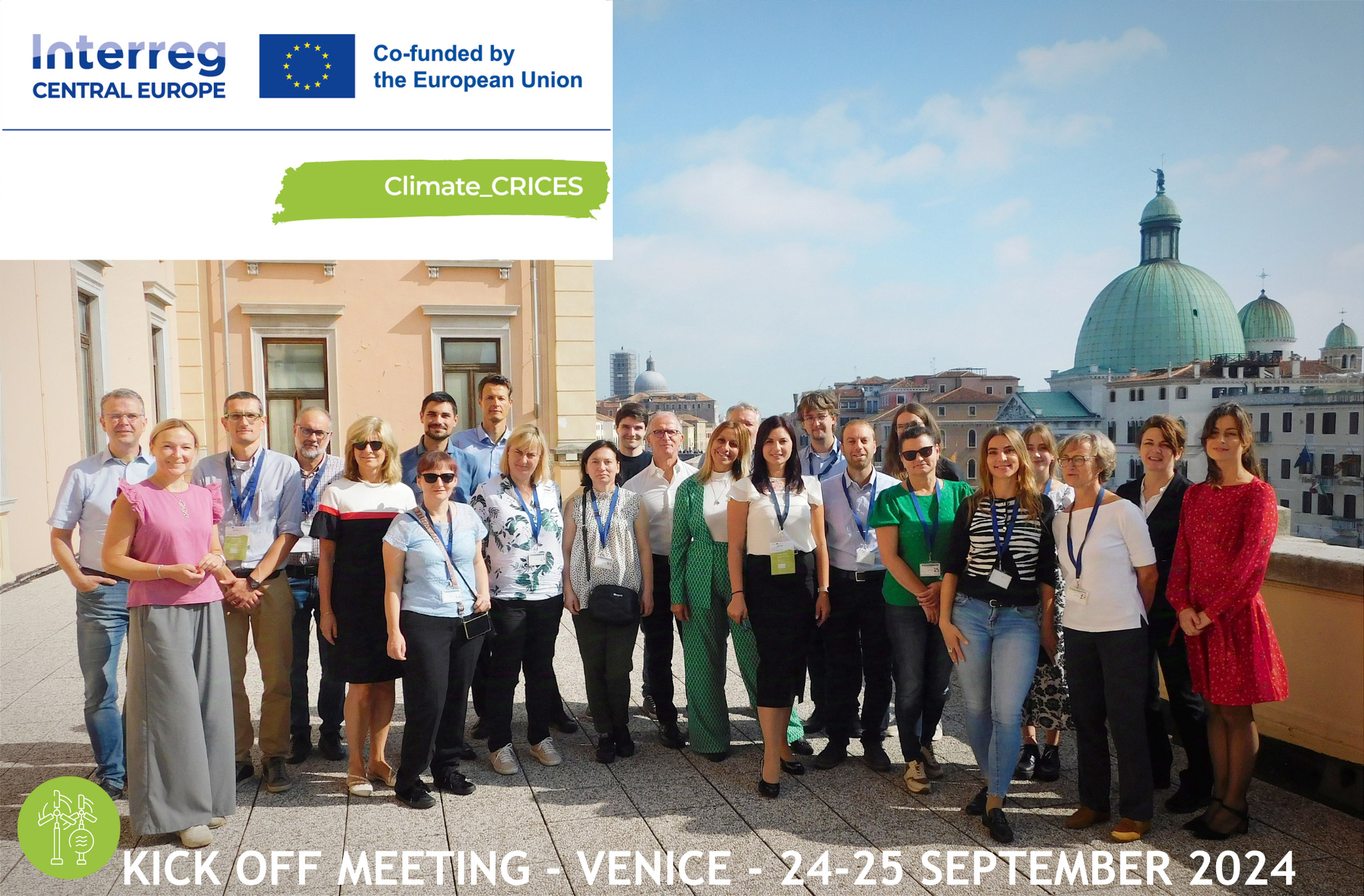The Climate_CRICES project, funded by the Interreg Central Europe Programme (ICE), held a successful launch meeting on September 24-25, 2024, at the historic venues of Palazzo Grandi Stazioni and Palazzo Balbi. The meeting brought together key stakeholders, including project partners, regional ministries, and environmental management experts, to initiate the project’s ambitious agenda aimed at tackling climate change in Central Europe.
The two-day event marked a significant milestone in the Climate_CRICES project, which seeks to enhance climate resilience in Central Europe through collaborative efforts and innovative strategies.
Day 1 Highlights:
The first day opened with welcome addresses from key project representatives, followed by detailed presentations outlining the project’s core work packages. These presentations emphasized the importance of managing the impacts of climate change in the region and provided a framework for the project's future actions.
Workshops held throughout the day focused on critical elements such as the development of the project dashboard, analysis of local policies related to climate change, and the integration of data collection initiatives. The day's proceedings ended with a networking session, allowing participants to exchange ideas and insights, followed by a cultural tour of Venice, reinforcing the city’s unique role in climate adaptation efforts.
Day 2 Focus:
The second day featured discussions on ongoing initiatives and provided a platform for participants to address financial management, risk mitigation strategies, and the next steps for the project. Presentations from various stakeholders offered valuable insights into regional challenges and solutions, setting a collaborative tone for the road ahead. The meeting concluded with a visit to Palazzo Balbi, symbolizing the shared commitment to strengthening climate resilience across the region.
Looking Ahead:
The Climate_CRICES project aims to foster partnerships and develop practical solutions to adapt to and mitigate climate change impacts across Central Europe. By integrating regional expertise, environmental data, and innovative policy approaches, the project will contribute to more sustainable, climate-resilient communities.
The kick off meeting in Venice has laid a strong foundation for our collaborative efforts to tackle the urgent challenges posed by climate change.
Project partners are thrilled to embark on this journey and look forward to driving positive change across the region.
The next project meeting will take place in January 2025 in Dresden.
According to recent IPCC reports, Central Europe faces critical challenges from heat, drought, flooding, and biodiversity loss. Despite extensive environmental data, these resources are underutilised in climate impact planning. Climate_CRICES seeks to leverage this data by establishing standardised classification criteria, trans-border standards, and presenting data in a user-friendly, multilingual format.
The primary goal is to implement a data-driven dashboard to enhance climate resilience and improve management capabilities for future projections. This initiative aims to increase public authorities' capacity to manage projected climate change effects, including heat, drought, flooding, and biodiversity impacts.
The data dashboard will analyse data from partners' platforms and integrate innovative sources, providing a trans-border perspective and forecasts. Regional authorities will gain skills to manage climate adaptation plans through capacity-building activities.
Climate_CRICES will serve as a template for climate adaptation management across Central Europe, offering accurate climate change projections for regional development plans and enhancing authorities' ability to manage climate adaptation through effective data use.
The Climate_CRICES project officially started on 1 June 2024 and it was launched with an online kick-off meeting on 17 June 2024.
The online meeting commenced with a welcome and introduction by Veneto Region (LP). The CE project manager in charge for Climate_CRICES introduced the programme and the project implementation. Partners introduced themselves briefly how they relate to the project and what the main points will be along which activities will be carried out. Veneto Region presented the Climate_CRICES project and the monitoring plan. CDDA followed with a communication presentation. IOER discussed WP1 entitled ‘Defining the added value of harmonised and visualised data for climate change effects 'projections’ and the initial steps for project implementation. Veneto Region then covered financial and administrative issues, and concluded the meeting.
Partners will meet in Venice at the end of September 2024 for an in-person kick-off meeting organised by the lead partner, further solidifying the project's foundation.
For more information, please follow the project on the official Interreg Central Europe website and LinkedIn page:
● https://www.interreg-central.eu/projects/climate_crices/
● https://www.linkedin.com/company/climate-crices/
Stay tuned for further updates as Climate_CRICES works towards a more resilient future for Central Europe.

